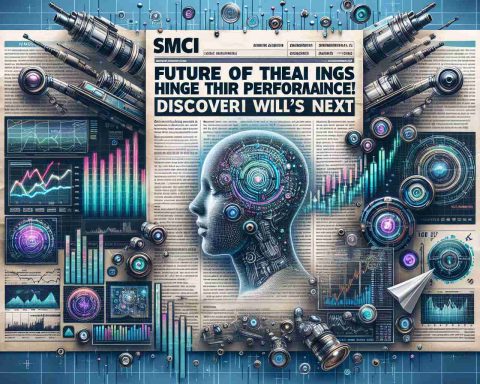Hindenburg Research, the impactful short-selling firm, announces its disbandment after numerous controversies. Founded by Nathan Anderson, the company gained notoriety for its investigative reports that significantly affected the market positions of several major corporations.
The firm has made headlines for targeting prominent entities like the Adani Group, Nikola Corporation, Block Inc., and Clover Health. In early 2023, Hindenburg released a damning report on Adani, claiming it was involved in extensive stock manipulation and fraud. This allegation resulted in a dramatic plunge in the company’s value, despite Adani’s firm denials.
Similarly, Hindenburg’s 2020 probe into Nikola accused the electric vehicle manufacturer of misleading investors regarding its technological capabilities, leading to the resignation of its founder and a 40% drop in share prices.
The firm also challenged Block Inc. over financial misreporting and presented allegations against Icahn Enterprises, accusing it of using deceptive financial strategies. Inquiries into Clover Health revealed undisclosed investigations that potentially jeopardized investor trust.
Despite its high-profile attacks on these companies, Hindenburg faced severe backlash for its accusations. The organization’s decision to disband marks the end of an era characterized by groundbreaking inquiries and substantial impacts on the U.S. financial landscape.
The Disbandment of Hindenburg Research: A Turning Point in Financial Investigative Practices
The recent disbandment of Hindenburg Research, an influential short-selling firm known for its rigorous investigative reports, marks a significant shift in the realm of financial accountability and market transparency. Founded by Nathan Anderson, the firm gained prominence for its controversial exposés of corporations like Adani, Nikola Corporation, and Block Inc. While Hindenburg’s reports sparked fierce debate and scrutiny regarding corporate governance, their dissolution raises questions about the future of financial watchdogs and investor protection.
The environmental, economic, and societal implications of Hindenburg’s work cannot be underestimated. One of the most notable impacts of their investigations pertains to the fragile nature of environmental sustainability, particularly in the electric vehicle (EV) sector, as evidenced by their 2020 report on Nikola Corporation. Following Hindenburg’s allegations of misrepresentation in Nikola’s technological capabilities, the company’s credibility was severely compromised. This incident not only resulted in a significant drop in its stock prices but also cast a shadow over the broader EV market, which is crucial for combating climate change and reducing carbon emissions.
As humanity grapples with the urgency of addressing environmental crises, the integrity of corporations within the clean energy sector becomes paramount. Hindenburg’s exposure of deceptive practices could serve as a catalyst for more rigorous regulatory measures that promote honesty in sustainability claims. On the other hand, the disbandment of such a firm might lead to fewer checks and balances, potentially allowing misleading claims to proliferate unchecked. In a world increasingly reliant on renewable energy and sustainable practices, the absence of organizations like Hindenburg Research may hinder the progress needed to secure a more sustainable future.
Moreover, Hindenburg’s controversial reports have profound implications for investor trust and market dynamics. Their investigations have uncovered critical issues of corporate governance that reflect broader systemic problems. When firms manipulate their stock or provide misleading information, it negatively impacts not only investors but also the larger economy by eroding confidence in market institutions. The backlash against Hindenburg’s methods indicates a society grappling with the tension between financial gain and ethical considerations—a discussion that will only intensify as we look toward a more interconnected global economy.
The disappearance of Hindenburg Research also raises concerns about the future landscape of financial accountability. As avenues for holding corporate giants accountable diminish, there is a risk of creating an environment where integrity takes a backseat to profits. This potential shift could have serious repercussions for the future of corporate ethics, human rights, and environmental justice worldwide. If corporations are not held to high standards, the ramifications could extend beyond financial loss, adversely affecting the lives of ordinary citizens and the health of our planet.
In conclusion, the disbandment of Hindenburg Research marks a critical juncture in the fight for corporate transparency and accountability. While their controversial methods may have sparked debate, the broader implications for the environment, humanity, and the economy remind us that rigorous oversight is essential for fostering trust and promoting sustainable practices. Moving forward, it is vital for new models of accountability to emerge, ensuring that the lessons learned from Hindenburg’s investigations continue to shape a more responsible corporate landscape. The future of humanity undeniably hinges on these crucial intersections between ethics, environmental sustainability, and the economy.
Impact of Hindenburg Research’s Disbandment: What It Means for Short-Selling and Market Oversight
The End of an Era in Short-Selling
Hindenburg Research, known for its bold investigative reports that have shaken the foundations of major corporations, has officially announced its disbandment. Founded by Nathan Anderson, the firm gained recognition as a formidable player in the short-selling arena, often effecting significant market changes with its findings. This announcement comes in the wake of numerous controversies that highlight both the power and the pitfalls of short-selling firms.
Innovative Investigative Techniques
Hindenburg became famous for its comprehensive reports that utilized a mix of traditional investigative journalism and modern data analytics. The firm’s approach often included:
– Whistleblower Testimonies: Leveraging insider information to validate claims.
– Data Analysis: Employing advanced data techniques to uncover financial discrepancies.
– Public Records Scrutiny: Analyzing regulatory filings and past performance metrics of targeted firms.
These methods allowed the firm to uncover fraudulent practices and misleading statements that had significant repercussions for companies like Adani Group and Nikola Corporation.
Pros and Cons of Hindenburg’s Operating Model
# Pros:
– Market Transparency: Hindenburg’s investigations shed light on unethical practices, contributing to overall market health.
– Investor Protection: They provided critical information that helped investors make informed decisions.
– Corporate Accountability: Their reports compelled companies to answer for their actions and improve governance.
# Cons:
– Market Volatility: The firm’s reports often led to dramatic stock price fluctuations, affecting not just targets but the industry as a whole.
– Reputational Damage: Companies faced severe reputational harm, regardless of the accuracy of the claims.
– Legal Repercussions: Hindenburg frequently faced lawsuits from the companies it investigated, drawing attention to the legal vulnerabilities in its operations.
Current Market Trends and Insights
With the disbandment of Hindenburg Research, there are pressing questions about the future of short-selling and market investigations:
– Rise of Alternative Firms: Other firms may step in to fill the void left by Hindenburg, potentially adopting similar or innovative approaches to short-selling.
– Regulatory Scrutiny: The ending of such a high-profile entity could lead regulators to evaluate the balance between investor protection and market manipulation through short-selling.
– Technological Advances: The increasing use of AI and data analysis in finance may witness new entrants utilizing these technologies to scrutinize companies effectively.
Future of Financial Oversight
The departure of Hindenburg signifies a potential shift in the landscape of financial oversight. Analysts predict that the following could emerge:
– Increased Collaboration: There may be collaboration between investigative firms and regulatory bodies, improving transparency in market practices.
– New Regulatory Frameworks: As short-selling firms evolve, there will likely be discussions on regulatory updates to address concerns about market integrity while supporting investor rights.
– Public Trust Dynamics: Public perception of corporate accountability and transparency may evolve, influencing how companies engage with stakeholders.
Conclusion
Hindenburg Research’s disbandment marks a significant chapter in the narrative of financial investigations and short-selling. As the market moves forward, the implications of this decision will ripple throughout the finance sector, influencing regulations, corporate accountability, and the strategies of future investigative firms.
For more information on market trends and financial insights, visit Finance Insights.




















